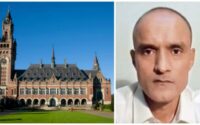Analysis: No Covid-19 vaccine for Asylum seekers and Refugees in India
This article is written by Ritika Srivastava, The ICFAI University, Dehradun
Introduction
There are certain sections in the society which remain unrecognized by the state viz. Asylum seekers, refugees, undocumented migrants (non- citizens of India). These people are framed as illegal migrants, who ran from their respective countries (endangered) but yet not accepted. Despite living in India for several years, many of them didn’t have proper documents to show their identity, also far from governmental schemes. According to the United Nations High Commissioner for Refugees (UNHCR), statistics is maintained for seeking the number of asylum seekers and refugees fled to India and also protecting such migrants and refugees from Myanmar and Afghanistan, along with the government. It has been a tradition going on for several years, to host refugees from South-Asian subcontinents and beyond certain refugees from Tibet and Sri Lanka, itself facilitated and protected by the Indian Government.
As per the sources of 2019, the estimated number of refugees is about 195,103 in India which is only officially reported. Refugees are no doubt ‘foreigners’ but in many cases they are distinguished with ‘foreigners’. There is no specific law to deal with them, they are dealt with common Indian law. UNHCR generally plays a vital role along with the government, especially regarding verification of their background and country origin. India is not a signatory to the 1951 Refugee Convention or its 1967 Protocol, and has consistently chosen to not enact a national asylum framework.
Do refugees and asylum seekers fall under the criteria fixed by the government for registration to get vaccinated?
The Covid-19 vaccination India had started from January 16, 2021. The process of vaccination is further divided into several phases. In the very first phase, it includes the frontline workers and healthcare people and in the second phase it included the people who are above the age of 45 years, and very recently it began for the age group above 18 years. Earlier this process of vaccination was started on the basis of data as mentioned in the voter’ list but this process would not continue for so long, but still people needed some identity proof to get vaccinated. Aarogya Setu and Covid-19 Vaccine Intelligence Network (CoWIN), these are the two apps through which a person gets registered for vaccination but there is also a requirement of Identity details in order to show that you are a citizen of India.
The registration process is done on these apps, it is also compulsory to provide one of the seven identity cards which includes Aadhar Card, Driving License, Pan Card, Passport, Pension Pass Book, NPR Smart Card and Voter ID Card
Refugees do not have any identity cards to get registered to get vaccinated, thereby making the process exclusionary especially for them only. They are totally eliminated from this whole process. This is not from day; they are always excluded from any basic amenities. The government did not even talk about their inclusion in the process of vaccination. This method of making registration mandatory raises lots of questions. As per the sources, the vaccine is already limited due to dense population. Due to lack of documents they did not even get to register.
Process of vaccine includes only the citizens of India, who have basic documentation but they are considered as non-citizens or illegal migrants and this is the major disadvantage for them. Lack of documentation builds a primary problem in front of them, which is facing in the way of Covid-19 vaccination. UNHCR recognized them but they are not recognized by Indian Government and only UNHCR might hold the Certificate of Asylum Seekers and Refugees.
How to make Refugees and Asylum Seekers vaccinated
In the month of February, the United Kingdom government took the first initiative to vaccinate their refugees and asylum seekers despite of proper documentation, considering this as their legal right as they contribute to raise the economy of the country, some other countries viz. European Unions, German also stepped out to protect their asylum seekers in order to control the spread of Covid-19.
Due to Covid-19 each and every section of the society is affected, but there are certain vulnerable section who faced this, both economically and socially, asylum seekers, undocumented migrants, refugees. These sections generally belong to the poor class, earn 500-700 daily to support their family, but now they are unable to find any work. Most of them dwell in places and surroundings that don’t allow them to socially distance themselves. Because of their economic condition, they have lack of medical care, personal hygiene and awareness regarding the virus.
The drive of ongoing vaccination in Indian is only open for the citizens of India, who fit under the categories of their registration process. And the remaining groups are still eliminated because of lack of documentation.
This is the perfect chance for the Indian government to widen their goodwill by vaccinating asylum seekers and refugees. Such a step would be considered a sincere humanitarian action by the Indian government and could alleviate its image within the international community. India should recognize the document which is issued by the UNHCR to asylum seekers and refugees. The UNHCR had revised its appeal early this year, asking countries to roll out vaccines for refugees, stateless persons and undocumented migrants. The UNHCR has also advocated for the inclusion of displaced persons and migrants as part of the national vaccination strategy.
Indian government should also start vaccinating these sections and inclusion of them can stop the spread or virus up to some extent. This is the only way to ensure the safety of all because it is the duty and responsibility of the government to secure each and every individual of the country because no one is safe until and unless everyone is safe.
In the case, State of Punjab & ors v. Mohinder Singh Chawla, Supreme Court held it is a duty of the state to maintain and provide health services to all the people residing in there, made it mandatory to vaccinate them and include Right to Health under Ar. 21 of the Indian Constitution.
Conclusion
This widespread of coronavirus breaks everyone either mentally or economically, whether it is citizens or refugees. But citizens have some sort of relief as they are provided with all the governmental policies. Despite of residing in India for several, they are helpless and eliminated from covid-19 vaccination process
International Organisation for Migration (IOM) Director General Antonio Vitorino stated:
“Access to health is a fundamental right, but too often still, those who need it the most – including migrants and forcibly displaced persons – are left out. If 2020 has taught us something, it is that ill health is a universal issue that does not distinguish based on nationality; so, to be truly effective, neither should our health coverage, including in upcoming COVID-19 vaccination efforts.
Curated by Athira Albert of Kristu Jayanti College of Law, Bangalore.


